Coronavirus: How to survive a pandemic as a young entrepreneur
- Published
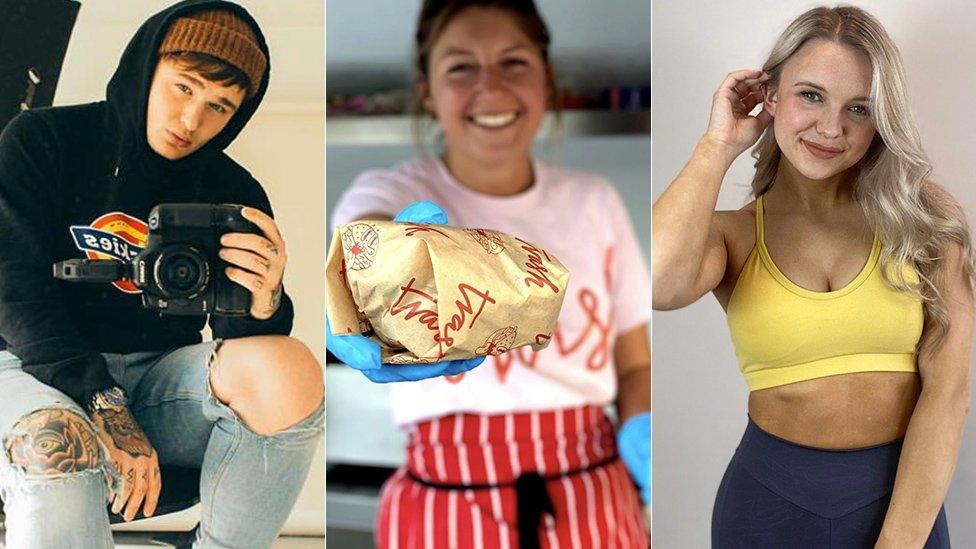
Starting your own business as a young person can be a gamble.
It might be just you and a friend taking a risk to build your idea into something sustainable.
So what happens when a pandemic comes along?
Three entrepreneurs tell Radio 1 Newsbeat how they managed to adapt their businesses to the "new normal" - and give their tips if you're hoping to go it alone too.
Zoe Lucock
'Don't be afraid to ask for help'
"There is no right time to start a business, you just don't know what's around the corner", food truck owner Zoe Lucock says.
The 28-year-old runs Trailer Trash with her mate Jessica Buckley.
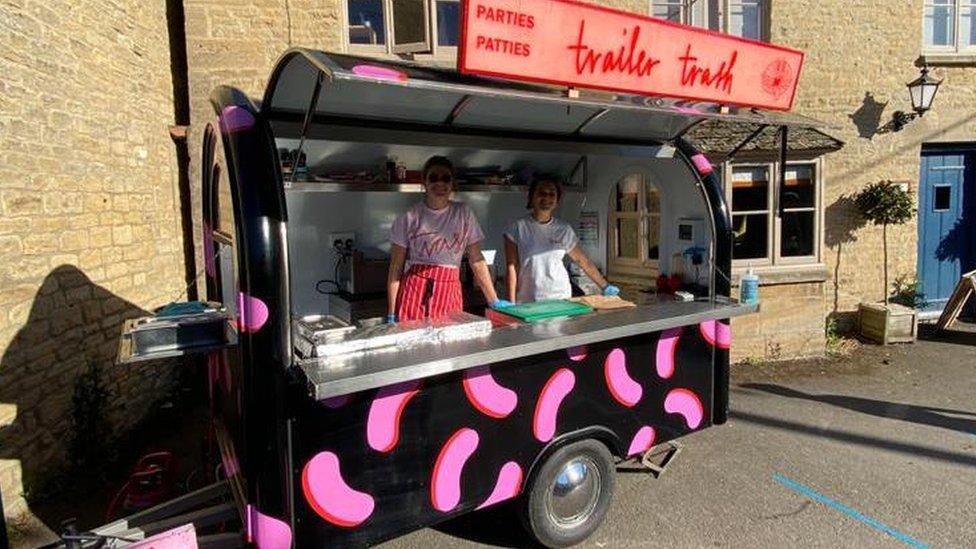
Zoe and Jess' food truck company Trailer Trash had all their business cancelled in 2020.
Before the coronavirus pandemic, the pair had their summer booked up serving burgers and cocktails at weddings and festivals.
But thanks to lockdown it was all cancelled, so they started looking for something more stable that would provide an income.
They decided to throw their energy - along with some savings - into changing their business. So they bought an old train carriage and recruited some friends who were furloughed to help renovate it into a café.
It now sits on a old train line in Stratford and they serve take-away coffees to passing dog walkers and cyclists.
"Everyone is feeling safer outside, which is what we can offer, with outdoor seating and take-aways", Zoe says. "Without having the breathing space and time to do it I don't think we would have taken it on."
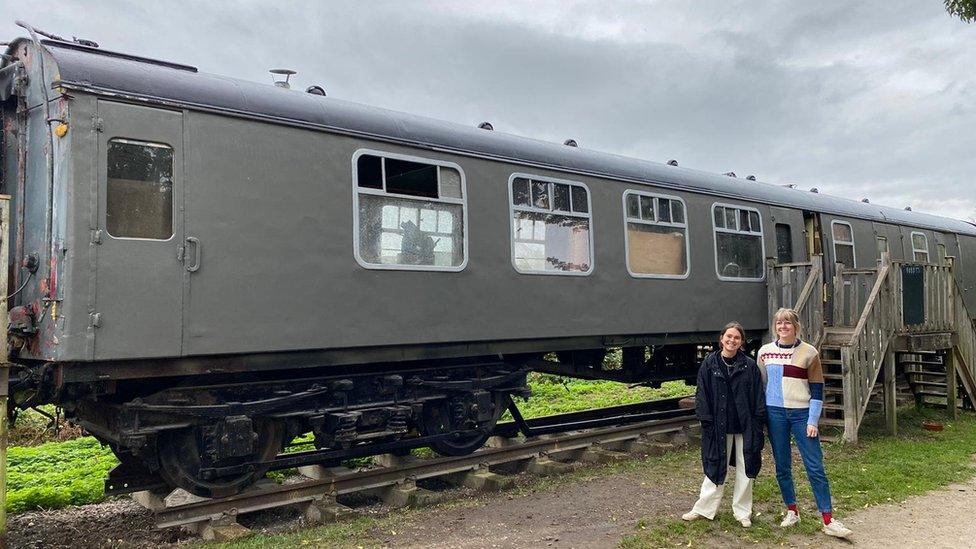
Zoe and Jess are now renovating a disused train carriage and turning it into a café.
Zoe says you should never be afraid to ask for help "whether that's from the county council, government grants or loans" to support your plans.
Feedback from friends, family and existing customers helps too. "Take on positives that you hear, and just go for it," she adds.
Allow Instagram content?
This article contains content provided by Instagram. We ask for your permission before anything is loaded, as they may be using cookies and other technologies. You may want to read Meta’s Instagram cookie policy, external and privacy policy, external before accepting. To view this content choose ‘accept and continue’.
The friends have plans to turn it into a proper café, serving food and wine, and they hope it will last as a long-term approach.
"We know we can adapt this business model if we go into another lockdown," Zoe says.
Keaton Rich
'Broaden your horizons to get work'
Like Zoe, Keaton Rich's entire year of work was cancelled. He's a photographer who shoots artists at gigs, festivals and events all over the world.
"I realised if I couldn't go outside and take photographs, I'd have to go and do something else," the 25-year-old tells Newsbeat.
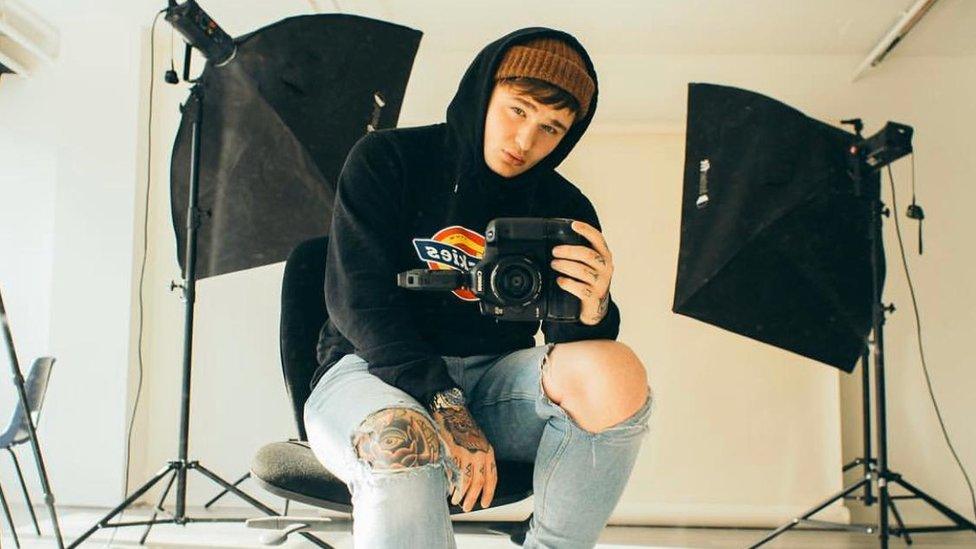
Keaton had to go back to basics and reinvent his business when lockdown hit.
So he fell back on other skills he had and added these to his company's portfolio.
"I went back into my old path of graphic design, designing and rebranding websites, consultancy. It means in the long run I can make a similar salary as when I take photos."
Keaton's taken on jobs he wouldn't normally have done in order to pay the bills, and says you should put "ego" aside.
And diversifying what he does has ended up been a positive step.
As well as taking on new clients - from fashion to insurance - he's ended up doing unexpected jobs he loved, including designing a vintage football shirt.
Allow Instagram content?
This article contains content provided by Instagram. We ask for your permission before anything is loaded, as they may be using cookies and other technologies. You may want to read Meta’s Instagram cookie policy, external and privacy policy, external before accepting. To view this content choose ‘accept and continue’.
He says when you work for yourself you've got to take every opportunity you see.
"I don't know if we're all going to go out and do our day to day jobs in the future. But there's a way to put yourself in a better position by taking jobs that come your way. Always ask for feedback, don't be afraid."
Emily Hale
'It's about being agile, adapting and being innovative'
For some people, the pandemic has given them the drive to quit their "9 to 5" job and start a business.
Emily Hale was furloughed from her marketing job in March, which she says gave her the time to build her pilates brand online.
She was already teaching some pilates in her spare time, and just before she was furloughed she was asked to do a live class for Gymshark.
"That really gave me the confidence, that I could succeed as a pilates teacher," the 22-year-old says.
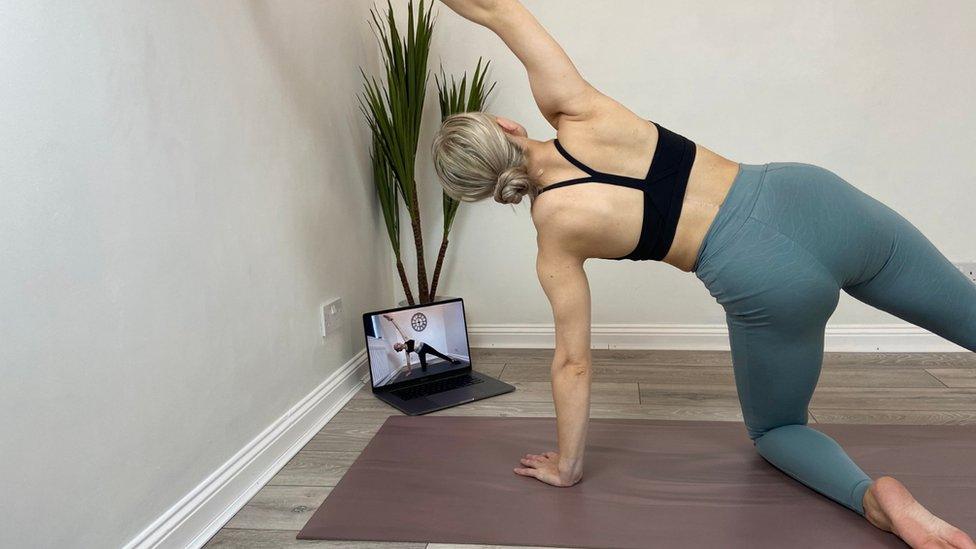
Emily started streaming more classes online after she was furloughed.
Emily had scoliosis and as a result, had a spinal fusion, so she found traditional styles of pilates didn't work for her.
She started exploring different techniques that worked for people with back conditions.
"I made myself a website and I started to post more content and videos."
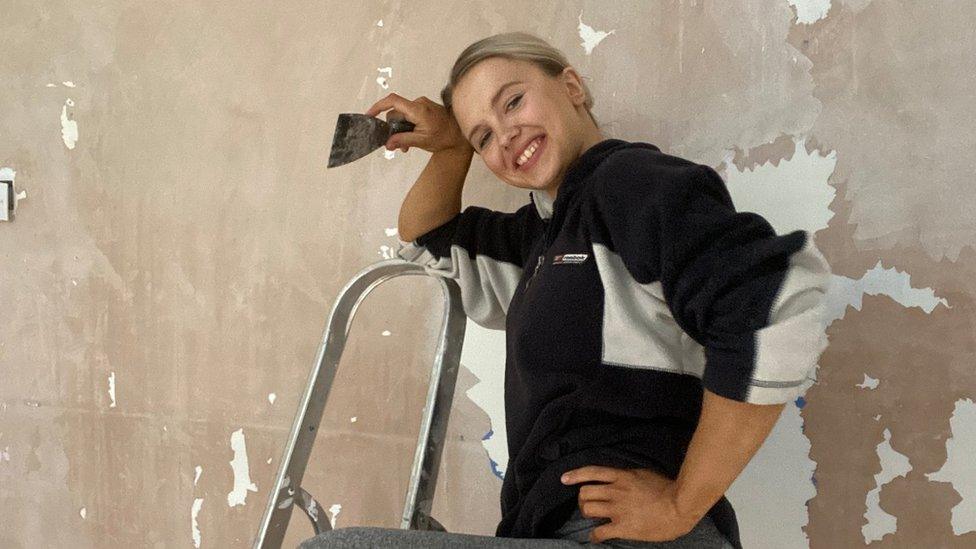
Emily turned a spare room at her mum's into a pilates studio.
In lockdown she redecorated a spare room at her mum's house, and turned it into a studio.
She started streaming more classes and quickly got booked up.
So she quit her marketing job to focus full time on teaching - and now makes more money from her bedroom than she did in her previous role.
Allow Instagram content?
This article contains content provided by Instagram. We ask for your permission before anything is loaded, as they may be using cookies and other technologies. You may want to read Meta’s Instagram cookie policy, external and privacy policy, external before accepting. To view this content choose ‘accept and continue’.
If you're thinking of becoming self-employed, Emily says starting an online business is a sensible move.
"Fitness was completely offline until a few years ago, but now there's been an explosion in fitness apps and zoom classes - helped by lockdown.
"It's obviously a big challenge being at the start of a business during this pandemic, but it's really helpful being online - it means you can change your strategy and how you operate with a click of a button."

Follow Newsbeat on Instagram, external, Facebook, external, Twitter, external and YouTube, external.
Listen to Newsbeat live at 12:45 and 17:45 weekdays - or listen back here.